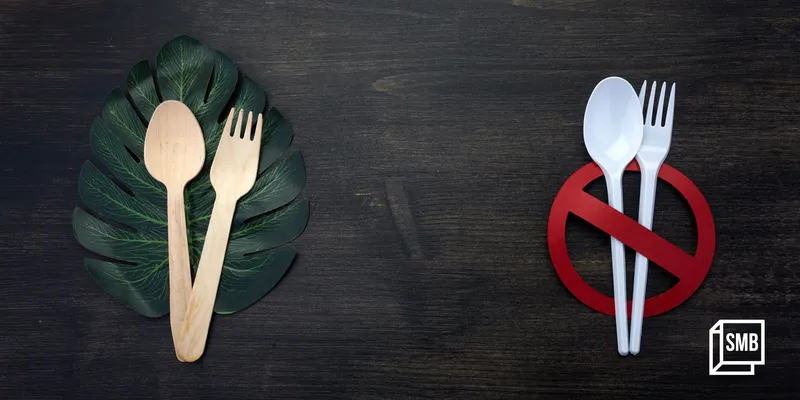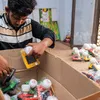Plastic ban: How the FMCG sector is impacted
Plastic carry bags, spoons, plates, glasses, straws, cigarette packs, sweet boxes, candy and ice cream sticks, PVC banners, and specific other plastic packaging materials are among the prohibited products.
On July 1, 2022, the government enforced the ban on single-use plastics (SUP), which will be punished with a fine, a jail sentence, or both under Section 15 of the Environment Protection Act (EPA) and the bylaws derived from it made by municipal corporations.
Plastic carry bags, spoons, plates, glasses, straws, cigarette packs, sweet boxes, candy and ice cream sticks, PVC banners, and specific other plastic packaging materials are among the prohibited products. This will lead to the closure of businesses that manufacture, supply, store, and market these goods.
India spearheaded a resolution on single-use plastic product pollution at the 4th United Nations Environment Assembly in 2019, recognising the urgent need for the international community to pay attention to the crucial issue.
Ahead of Prime Minister's speech on October 2, 2019 on reducing the use of single-use plastics, more than 20 Fast Moving Consumer Goods (FMCG) companies made a commitment to go plastic-neutral by 2022. They include Hindustan Unilever, Dabur, ITC, Kellogg's, Mother Dairy, Nestle, Modelez, Pepsico India, Bisleri, and Coca-Cola India.

On July 1, 2022, India enforced the ban on single-use plastics.
Challenges for the FMCG sector
In terms of size, the FMCG sector of the Indian economy ranks fourth. Due to the high manufacturing volume and the ban on single-use plastic, it becomes necessary to package goods with the highest safety level and also keep the manufacturing cost at the lowest.
Even if attempts are being made to end the usage of plastics in the FMCG sector, creative packaging solutions are still required. Plastics are still widely used because they are one of the most affordable and successful ways to lower commodity prices, benefiting the general public, especially in rural regions.
With rising environmental concerns and a ban on all plastic use, it is important to determine how businesses in the packaging industry will assist control costs by utilising alternative packaging. Concerns have already been expressed about the means of subsistence for those employed in this field.
Even though there are many unanswered challenges and a long way to go, one thing is certain: environmental consciousness has reached producers. Hence, it will undoubtedly develop creative answers to problems with an affordable alternative packaging material in the near future.
Possible solutions
FMCG companies can implement a component of their action plan by reducing single-use plastic packaging and sachet bags. The government has also suggested substitutes like bamboo straws, khadi bags, and jute bags. It has also advised introducing packaging made of materials other than plastic, most likely paper, when appropriate.
Together with startups and smaller businesses, large corporations must endeavour to develop sustainable packaging. Specialist businesses developing superior solutions can greatly aid other FMCG businesses.
While many businesses are also dealing with the problem of excess inventory with their stockists and retailers, they are nevertheless following the government's decision to outlaw single-use plastics by importing paper straws and any other market-based solutions. It is also important for businesses to encourage customers to return plastics after use so that efficient trash disposal may occur in a world where only 14% of plastic packaging makes it to recycling facilities.
Many FMCG companies had already started working on sustainable alternatives before the ban went into force.
Edited by Kanishk Singh
(Disclaimer: The views and opinions expressed in this article are those of the author and do not necessarily reflect the views of YourStory.)








